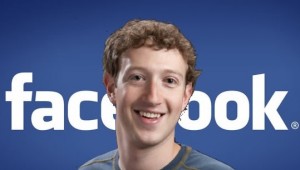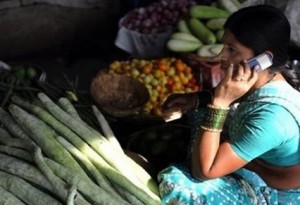
Zuckerberg Web Project must succeed

Not getting 300 million users online in India, leading internet thinkers believe, will be as much a loss to those that are online. “To continue connecting the world, we have to connect India. More than a billion people in India don’t have access to the internet. That means they can’t enjoy the opportunities many of us take for granted as the times are too challenging, and the entire world is robbed of their ideas and creativity,” said Mark Zuckerberg, CEO & founder, Facebook, in a statement at the launch of internet.org app for India on February 10, 2015. Regular people, aspiring businesspersons and those with established businesses who want to be kept well informed of developments, themes that will dominate for years to come, We must allow narrow minded, greedy internet companies put spanner in the works, instead Mark Zuckerberg, should be encouraged to succeed his novel project of connecting the most disadvantaged people in society from poorest part of the world from gaining access, so that they too have a voice, because we need men or women of that type of grit and determination. It is after all entrepreneurs of this type who are, or should be, the backbone of Free Market Economy.
Facebook backed Internet.org initiative to achieve net neutrality, a term used by campaigners who want all data online to be treated equally, including broadband and mobile companies should not charge different fees depending on the content transmitted on their networks.
Launched in 2013, Internet.org is a project by Mr Zuckerber to bring internet to those who can’t afford it and those who do not currently have access to it, via partnerships between facebook and telecom groups. In India , Facebook’s second largest market users , internet.org linked up with Anil Ambani’ s Relianace Communications.
This row follows a decision earlier this week by Flipkart, India’ s leading ecommerce group by revenue to withdraw from an app approved provided by Airtel, the number one mobile operator by users in India.
Mark Zuckerberg is defending Facebook’s free internet project, Internet.org, after a several Indian media and technology groups pulled out from Internet.org, amid protests for net neutrality. “If someone can’t afford to pay for connectivity, it is always better to have some access than none at all,” Zuckerberg writes in a Facebook post discussing the recent events. Zuckerberg argues that net neutrality is “not in conflict” with Internet.org — an app that offers free internet access but only to select websites — because the service does not throttle or block other websites (though you could fairly argue that it blocks everywebsite that it doesn’t grant access to). “IT’S TOO EXPENSIVE TO MAKE THE WHOLE INTERNET FREE.”
At the heart of the row is Internet.org’s policy of “zero-rating”, whereby telecoms providers agree not to pass on the costs of handling the data traffic so that consumers can receive services for free. Mark Zuckerberg pointing out that joining Internet.org is free for web publishers and app providers.
Cleartrip, a travel ecommerce group, latest to pull out, joining news channel NDTV and Start-up Newshunt.The Times of India also pulled out some services.
“We’re open for all mobile operators and we’re not stopping anyone from joining,” says Mr Zuckerberg. “We want as many internet providers to join so as many people as possible can be connected.”
However, India’s leading mobile operator Bharti Airtel has also been applying zero-rating to its Airtel Zero service.
This means that consumers can access certain apps for free because the app provider picks up the data bill.
Smaller developers without the resources to do the same are at a commercial disadvantage.
Unlike in the United States, the primary net neutrality argument in India right now isn’t about fast lanes — it’s about what’s known as “zero rating.” Zero rating means that accessing some websites and apps doesn’t eat into an internet subscriber’s data allotment. In the case of Internet.org, access to zero-rated websites is given away for free with the goal of offering some internet connection to those who can’t afford any. The side effect of this, however, is that people are much more likely to use free websites than any other websites, giving a distinct advantage to companies that are included in Internet.org. Some opponents have argued that Facebook’s intention is to make people confuse the internet with Facebook itself.
It’s too important to get people online to worry about these things. That’s not an altogether terrible argument: at least in its incarnation at launch, Internet.org provided access to Wikipedia, an HIV prevention and counselling service, a women’s rights app, a job-finding service, and Google. It also included access to Facebook and Messenger, but it’s hard to argue that it’s wholly troubling when more people have access to these other websites.
The issue is that more and more services are being added, and their competitors don’t necessarily get a chance to be included, too. Zuckerberg says that Facebook doesn’t pick what’s included in Internet.org on its own — it apparently works with local carriers and governments to decide what makes sense for each country and area that it operates in. But by necessity, some websites are going to be left out. “It’s too expensive to make the whole internet free,” Zuckerberg writes in reply to a question. “But by offering some basic services, it’s still affordable for [mobile operators], and it’s valuable and free for everyone to use.”
By 2018, India could become the second largest population of internet users according to a report, by the Internet and Mobile Association of India, claims that the number of online users will rise to more than half a billion by 2018.
“We are adding five million new users a month and that should take the user base to 500 million by 2018-19,” says Rajan Anandan, managing director, Google India.
Till June 2014, India was behind China and United States with 190 million users. But it took India 20 years to get the first 100 million users, says the india@digital.bharat report.
With 300 million users we have covered India, but Bharat is yet to get connected,” says Subho Ray, president, Internet and Mobile Association of India (IAMAI). “Growth could plateau unless public, free WiFi happens in sync,” he adds.
The second 100 million users were likely to be generated within the next three years and the third hundred million-mark is expected in just one year after that, the report
These are significant numbers as the government is relying on this data to draft its Digital India policy. There will be more users from the rural areas, more people will access internet from their phones and the number of women users will also rise significantly, says the report.

